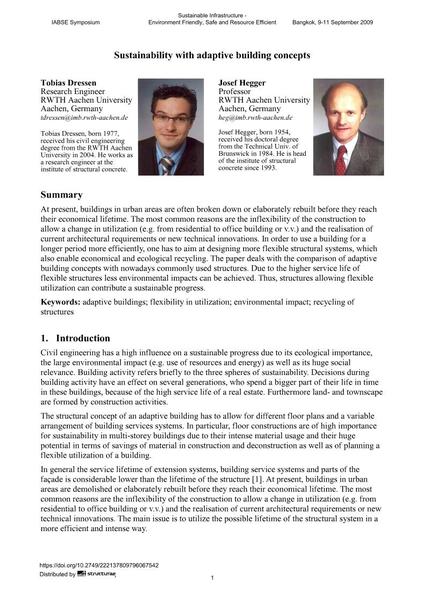Sustainability with adaptive building concepts

|
|
|||||||||||
Bibliographic Details
| Author(s): |
Tobias Dressen
Josef Hegger |
||||
|---|---|---|---|---|---|
| Medium: | conference paper | ||||
| Language(s): | English | ||||
| Conference: | IABSE Symposium: Sustainable Infrastructure - Environment Friendly, Safe and Resource Efficient, Bangkok, Thailand, 9-11 September 2009 | ||||
| Published in: | IABSE Symposium Bangkok 2009 | ||||
|
|||||
| Page(s): | 66-73 | ||||
| Total no. of pages: | 8 | ||||
| Year: | 2009 | ||||
| DOI: | 10.2749/222137809796067542 | ||||
| Abstract: |
At present, buildings in urban areas are often broken down or elaborately rebuilt before they reach their economical lifetime. The most common reasons are the inflexibility of the construction to allow a change in utilization (e.g. from residential to office building or v.v.) and the realisation of current architectural requirements or new technical innovations. In order to use a building for a longer period more efficiently, one has to aim at designing more flexible structural systems, which also enable economical and ecological recycling. The paper deals with the comparison of adaptive building concepts with nowadays commonly used structures. Due to the higher service life of flexible structures less environmental impacts can be achieved. Thus, structures allowing flexible utilization can contribute a sustainable progress. |
||||
| Keywords: |
environmental impact adaptive building flexibility in utilization recycling of structures
|
||||
